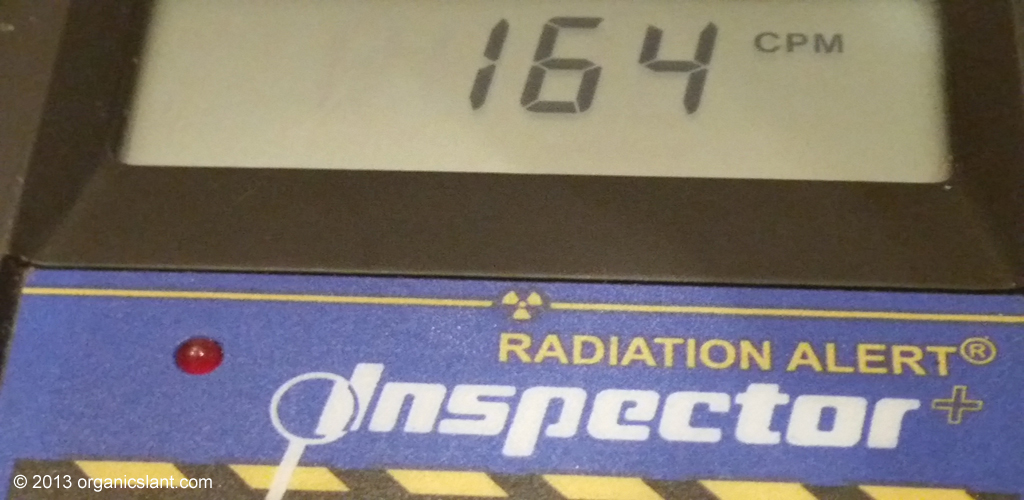If nobody tests for radiation in food stuffs, does it mean it doesn’t contain radiation. The Japanese Ministry of Health and Labor announced testing for radioactive cesium in food will be scaled down.
They have been testing only 132 food items to begin with. Ministry of Health and Labor announced that the radioactivity testing for food items will be scaled down significantly, by exempting 34 items from testing. That 25% of food items that have been regularly tested since the start of the Fukushima I Nuclear Power Plant accident.
Certain fruits that have consistently been found with elevated amounts (if not exceeeding the safety standard of 100 Bq/kg) of radioactive cesium are going to be exempted – peaches, apples, and pears.
On March 19, the national government announced that certain leafy vegetables, fruits, and certain kinds of fish will be exempt from the tests conducted by the municipalities for radioactive cesium, starting April. The number of food items to be tested will be reduced from the current 132 to 98. It is the first time that the radiation test for food has been significantly revised.
Items to be excluded from the testing are spinach, lettuce, cabage, daikon, potatoes and other vegetables, peach, apple, pear and other fruits, young lancefish, sardine, mackerel, yellowtail and other fish.
Amendments about radioactive material in food “concept test plan, set-up and release of materials and areas, such as restrictions on shipment”. March 2013 Amendments of radioactive material in food
Makes no sense at all. You would think that there would be an increase in testing, since study after study is indicating larger swathes of contaminated land. Seems like the mentality is, out of geiger counter sight, out of geiger counter mind.

 Shocking Glyphosate Levels in Popular Bread: Florida’s Eye-Opening Food Testing Report
Shocking Glyphosate Levels in Popular Bread: Florida’s Eye-Opening Food Testing Report Blood Sugar Stability the Organic Way: Low-Glycemic Foods and Meal Ideas
Blood Sugar Stability the Organic Way: Low-Glycemic Foods and Meal Ideas Animal vs. Plant Protein: These Protein Sources Are Not Nutritionally Equivalent
Animal vs. Plant Protein: These Protein Sources Are Not Nutritionally Equivalent Billions of nanoplastics released when microwaving baby food containers
Billions of nanoplastics released when microwaving baby food containers